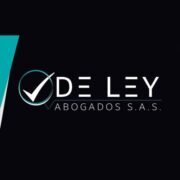Best Accounting & Auditing Lawyers in Cali
Share your needs with us, get contacted by law firms.
Free. Takes 2 min.
List of the best lawyers in Cali, Colombia
About Accounting & Auditing Law in Cali, Colombia
Accounting and auditing serve as the backbone of financial transparency and business compliance in Cali, Colombia. These areas of law ensure that companies, professionals, and organizations properly record, report, and verify their financial data in line with Colombian and international standards. Regulatory bodies such as the Junta Central de Contadores and the Superintendencia de Sociedades play a critical role in overseeing the standards and practices within this field. Whether you are a business owner, an accountant, or an investor, understanding the local legal landscape for accounting and auditing is essential for staying compliant and making informed decisions.
Why You May Need a Lawyer
There are many scenarios in which legal guidance in accounting and auditing becomes necessary, including:
- Setting up a new business and ensuring your financial recordkeeping complies with Colombian law
- Facing a financial audit or inspection by government authorities, such as the DIAN (Dirección de Impuestos y Aduanas Nacionales)
- Encountering allegations of financial irregularities, fraud, or misreporting
- Interpreting and applying complex tax, accounting, and international financial reporting standards (IFRS/NIIF)
- Managing mergers, acquisitions, or liquidations where thorough auditing is required
- Dealing with disputes between business partners that involve financial data or reporting
- Responding to sanctions or disciplinary procedures from agencies overseeing accountants and auditors
- Ensuring compliance with anti-money laundering regulations
Local Laws Overview
Cali, like all Colombian cities, follows national accounting and auditing rules established by the government. Most businesses must adhere to the International Financial Reporting Standards (NIIF, in Spanish), as implemented in Colombia by Law 1314 of 2009. Local laws also require:
- All legally established companies to keep accurate accounting books and supporting documentation
- Annual external audits for larger companies and certain regulated industries, supervised by registered statutory auditors (Revisores Fiscales)
- Registered accountants (Contadores Públicos) to be duly licensed by the Junta Central de Contadores
- Strict compliance with the Código de Comercio (Commercial Code), NIIF, and tax laws set by the DIAN
- Mandatory preservation of accounting records for at least ten years
Failure to comply with these regulations may lead to fines, closure of business, or even criminal charges.
Frequently Asked Questions
What qualifications must an accountant have in Cali?
Accountants must hold a university degree in accounting, be registered with the Junta Central de Contadores, and maintain good standing to legally practice in Colombia.
Who needs to have an external (statutory) auditor?
All large corporations, certain medium-sized businesses, financial institutions, and regulated industries must appoint a certified statutory auditor (Revisor Fiscal) as stipulated by law.
Are there specific accounting standards required in Cali?
Yes, most entities must apply the NIIF, Colombia’s version of International Financial Reporting Standards, according to the size and type of business.
How long should accounting records be kept?
Colombian law requires accounting books and supporting documentation to be preserved for at least ten years.
What happens if my business does not comply with accounting regulations?
Consequences may include fines, business closures, and even criminal prosecution in cases of fraud or intentional misreporting.
Can foreign companies operating in Cali use international accounting standards?
Foreign entities must adapt their accounting practices to Colombian NIIF and local tax laws, though international standards influence these regulations.
What is the role of the DIAN in accounting and auditing?
DIAN is the national tax authority. It audits businesses for tax compliance and may inspect accounting books and records to ensure adherence to tax laws.
Is it mandatory to hire a local accountant?
While small businesses may manage their own finances, complex operations or those above certain thresholds must engage certified accountants to ensure legal compliance.
What legal remedies exist if I disagree with an audit’s outcome?
You may challenge audit findings through administrative processes or the courts. Legal representation is highly recommended for such disputes.
Do nonprofit organizations follow the same accounting standards?
Nonprofits have specific regulations but must also keep proper accounts and may be subject to auditing and oversight depending on their size and activities.
Additional Resources
For assistance and more information, consider the following organizations:
- Junta Central de Contadores: The national oversight board for accounting professionals
- Superintendencia de Sociedades: Supervises corporations, including auditing standards
- DIAN (Dirección de Impuestos y Aduanas Nacionales): The Colombian tax authority
- Cámara de Comercio de Cali: Provides business registration and guidance on legal compliance
- Colombian Institute of Public Accountants (Instituto Nacional de Contadores Públicos): Professional body supporting best practices
Next Steps
If you think you need legal advice or representation regarding accounting and auditing in Cali, here’s how you can proceed:
- Gather all relevant documents, including accounting records, tax filings, contracts, and correspondence with authorities
- Identify the specific issue or area where you need help, whether it’s compliance, a dispute, a pending audit, or another concern
- Reach out to a legal professional experienced in local accounting and auditing laws. Ensure the lawyer or law firm has expertise in working with businesses in your industry and understands Colombian standards
- If you are a foreign entity or facing cross-border issues, seek counsel with international experience
- Prepare questions and be ready to discuss your business’s structure, operations, and objectives in detail
Taking these steps will help you safeguard your interests and ensure your business operates within the framework of Colombian law.
Lawzana helps you find the best lawyers and law firms in Cali through a curated and pre-screened list of qualified legal professionals. Our platform offers rankings and detailed profiles of attorneys and law firms, allowing you to compare based on practice areas, including Accounting & Auditing, experience, and client feedback.
Each profile includes a description of the firm's areas of practice, client reviews, team members and partners, year of establishment, spoken languages, office locations, contact information, social media presence, and any published articles or resources. Most firms on our platform speak English and are experienced in both local and international legal matters.
Get a quote from top-rated law firms in Cali, Colombia — quickly, securely, and without unnecessary hassle.
Disclaimer:
The information provided on this page is for general informational purposes only and does not constitute legal advice. While we strive to ensure the accuracy and relevance of the content, legal information may change over time, and interpretations of the law can vary. You should always consult with a qualified legal professional for advice specific to your situation.
We disclaim all liability for actions taken or not taken based on the content of this page. If you believe any information is incorrect or outdated, please contact us, and we will review and update it where appropriate.









